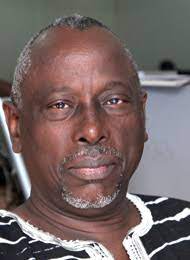At the launch of Agaciro Development Fund, President Paul Kagame wondered why Rwanda, often dismissively described as a tiny country, attracts so much attention, blame and vilification from some of the most powerful countries in the world.


At the launch of Agaciro Development Fund, President Paul Kagame wondered why Rwanda, often dismissively described as a tiny country, attracts so much attention, blame and vilification from some of the most powerful countries in the world.On the face of it, it looks inconceivable that such a small country, as they don’t tire to tell us, can occupy the minds of people used to dealing with more weighty issues. Why not dismiss the little thing, ignore that it even exists and get on with the more important matter of ruling the world? But no, the little spot in the heart of Africa insists on being a nuisance that cannot be easily shaken off.In reality, however, this is exactly the point. The tiny country is not so small after all. It is actually big enough to make it difficult for those who want to rule the world to do so as they wish. It insists on having a say about how things are done and on the choices it makes – certainly within its borders.The so-called small country is not inhabited by puny people with undersized brains and underdeveloped aspirations. On the contrary, its people view Rwanda as the whole universe and have aspirations to match, and fashion their actions to fit this conception of world and country.In this world divided between the rich and powerful and the poor and weak, you attract attention for two main reasons. You are either doing some remarkably great things, which, in the view of the powerful, you have no right to be doing. Or you are doing the most horrendous things for which you should be condemned, but which in their view is closer to what is expected of you.We will concern ourselves with the former where the remarkable things you are doing (unexpected to them) are a challenge to their long-held beliefs about your place in the world. They are a threat to their monopoly on good governance, efficiency, and working in the national interest as opposed to individual gain. They question the stereotype attitudes that African governments are inherently inefficient and corrupt, that famine and disease are endemic.And so, when a country like Rwanda or Ethiopia, makes famine a distant memory of a forgettable past through a combination of hard work, land reforms, appropriate and modern agricultural practices and market-oriented economics, it is a challenge to the notion that we must live at the mercy of nature. Worse, it is denying some people the opportunity to do good by feeding starving people, and perhaps earn easy passage to heaven. Self-reliance becomes a crime because it sabotages the interests of a huge humanitarian industry built on chronic famine, conflicts, instability and all kinds of disasters.No one takes kindly to saboteurs, and so Rwanda will earn the wrath and condemnation of those affected. But to ease their conscience and make Rwanda appear guilty, the good things being done are rebranded as horrendous acts, like repression and autocracy, for which the country should be punished.Again, when like Rwanda, you do not tolerate any form of corruption, you are not behaving to type or you are not open, or are repressive. How else can corruption which is endemic to Africa be absent? In any case what will the various anti-corruption agencies report and how will they get money for their operations?Current reports about Rwanda speak of reputable foreign universities setting up campuses in Rwanda to tap into the high demand for higher education. We read about local and foreign investors setting up schools of every type, and ordinary Rwandans contributing to build schools in their areas. What this means is that Rwandans will soon be well-informed about most issues and will have acquired skills to improve their lives. More significantly, it means that there will be less ignorance to exploit and therefore Rwandans will be more difficult to manipulate.Also, when like Rwanda, your people say they are contented about nearly every aspect of their lives, surely that cannot be right. There must be some discontent. If it is not there, it is because of repression. Or if it is not that, it must be sown to maintain a "normal” situation. And if you insist on being the principal actors in changing your lives, assert your human dignity and demand your right to be heard and to choose what is best for your country, you upset the accepted form of power relations and will bring the ire of the powerful on your head.In all the above instances, you are challenging the conventional view of an African country whose leaders are seen as either bumbling idiots or blood-thirsty dictators, and the people as helpless and passive victims of circumstances.Of course, you will attract some admiration, but a lot of wrath as well. The wrath will grow if the country begins to wield some influence or command respect. It will grow stronger if it is felt the country is getting out of control and threatens to set a "bad” precedent. That seems to be the crime of "tiny” Rwanda.


